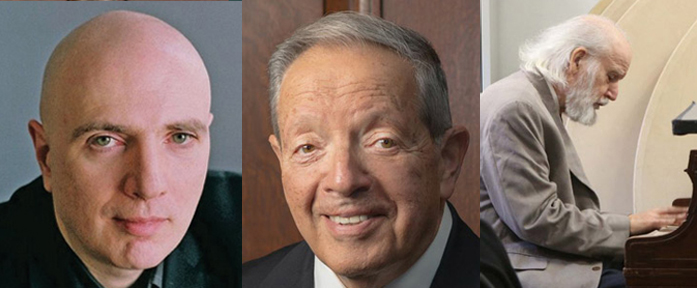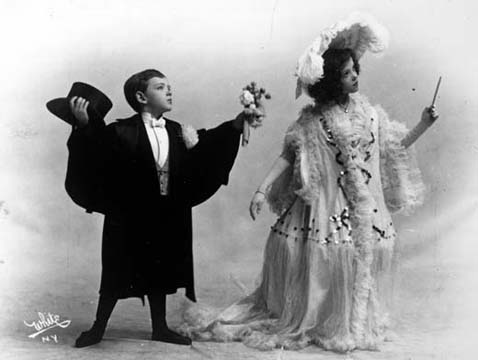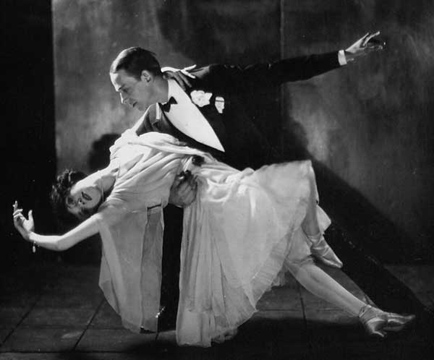by Alix Cohen
Harvey Granat began a new season of his midday Songs and Stories at the 92nd Street Y with a salute to the incomparable Fred Astaire. Author/journalist Will Friedwald pinch-hits as Special Guest for ailing Rex Reed.
By the time Irving Berlin had the opportunity to work with Fred Astaire, all the greats had written songs for a man they considered one of the most authentic vocalists in the business, admired for lyricism, diction, elegance, and phrasing. In 1935, when offered the film Top Hat, Berlin had to overcome such poor experience in Hollywood he’d sworn off writing for movies. The name Astaire made a molehill of the mountain and the songwriter enthusiastically penned not just what was requested, but 12 numbers, half of which carried over to Follow the Fleet. “His heart went into a song long before his feet got involved.” (Berlin)
A graceful piano overture by David Lahm is followed by Astaire stats: 11 Broadway shows and 31 films in which he introduced songs. Frederick Austerlitz 1899 –1987 was born in Omaha, arrived in New York at 6, and with older sister Adele, was promptly sent to dancing school. The duo started on Vaudeville’s Orpheum Circuit as children and broke onto Broadway in 1917.
Lady Be Good was Astaire’s first collaboration with George Gershwin whom he’d met 8 years earlier when the latter was a song-plugger. Two main numbers outlived the show, the title song and “Fascinating Rhythm.” Lahm’s music arrives as if accompanying a tap dancer. The Astaires played Broadway and The West End returning to star in another Gershwin piece, Funny Face. When the film was eventually made, the brother/sister story turned into a freshly minted romance. Granat croons three songs from the show including a rather plaintive “He Loves and She Loves” -their waltz by a country church, remember?
Back then, Friedwald tells us, “They built musicals around stars. When the show traveled to London, it would shut down on Broadway so its leads could appear. Doing this today would be inconceivable.” It was during the run of Funny Face on The West End that Adele met Lord Charles Cavendish, the man she would shortly marry retiring from show business. She’d do only one more with her brother, the marvelous Bandwagon.
Fred’s next appearance on Broadway was in Gay Divorce; his new partner, Claire Luce. “Not Claire Booth Luce,” Granat hastens to tell us. “I always confuse them,” Friedwald quips, “Thank you for Claire-ing that up.” “Go to your room,” Granat retorts. Cole Porter’s “Night and Day” brings out the balladeer. Granat’s vocal is tender and sincere, every sentiment believable. Two years, later it morphed into the film The Gay Divorcee, thought to be a less racy title. “Think how far we’ve come,” our host comments.
When Astaire was flown out to screen test at RKO, David Selznick wisely recognized what he saw: “… I feel, in spite of his enormous ears and bad chin line, that his charm is so tremendous that it comes through even on this wretched test.”
After appearing as himself (loaned out to MGM) with Joan Crawford in Dancing Lady, Flying Down to Rio and Roberta followed. Astaire famously told his agent he was against being part of another dance team when Rodgers was repeatedly cast. Nonetheless, they made 9 films together. Then came Top Hat which broke all attendance records at Radio City Music Hall. We hear jaunty versions of “Heaven” and “Isn’t It a Lovely Day? (To Be Caught in The Rain.)”
One of Berlin’s leftover numbers appearing in Follow the Fleet emerged when Seaman “Bake” Baker (Astaire) tries to prevent dance hostess, Sherry (Rodgers) from committing suicide. I’ll lay odds you never think of that scenario hearing “Let’s Face the Music and Dance.” Granat lets long notes twirl, but there’s also insistence in his rendition.
Swingtime’s “The Way You Look Tonight” arrives understated and palpably warm… Lovely…Granat sings shaking his head, marveling. Shall We Dance?, needed a rueful lyric. The wonderful “Let’s Call the Whole Thing Off” ignominiously lost an Academy Award that year to “Sweet Leilani.” It’s a soft shoe this afternoon. Granat says he’ll feed us the lyrics. “They know it,” Lahm interjects. And so we do.
Carefree was the first film in which Astaire’s character kissed that of Rodgers. His wife was irrationally jealous. It was also the first time their screen pairing lost money. “I don’t know whether there was any connection,” our host says wryly. A rumba interpretation of “Change Partners” makes one want to sway. The Sky’s the Limit birthed “One For My Baby (And One More For the Road)” often associated with Frank Sinatra but introduced by Astaire. Granat’s version is melancholy but also pissed off.
Friedwald regales us with a story about diehard New Yorker, Tony Bennett. Having briefly moved to Hollywood at the insistence of his wife, he was somewhat pacified to find Fred Astaire his next door neighbor. Bennett was playing Las Vegas when approached by a manager who’d heard about the artists’ proximity. Writing a blank check, he requested Bennett tell Astaire he could fill in any amount to play The MGM Grand.
Bennett handed over the check in his kitchen. “Oh, no, I can’t dance anymore,” Astaire said, “I’m in my 70s.” The host exited to take a phone call. When he returned, Bennett found Astaire improvising choreography to Big Joe Turner on the radio. He couldn’t resist.
The subject appeared on television specials and dramatic films. After 21 years of marriage to a Boston born socialite, his wife passed. In 1980, at the age of 81, he married a jockey 45 years his junior. They were, by all reports, happy. Fred Astaire died 7 years later having had immutable impact on both American Songbook and choreography.
Archival photos courtesy of Wickipedia
Songs and Stories with Harvey Granat
Fred Astaire: The Composer’s Singer
Special Guest- Author/Journalist Will Friedwald
David Lahm -piano
March 29, 2018 92nd Street Y at Lexington Avenue
NEXT: Ira Gershwin After George with pianist David Lahm and
Special Guest Michael Strumsky, sole Trustee of the Ira and Lenore Gershwin Trusts






















